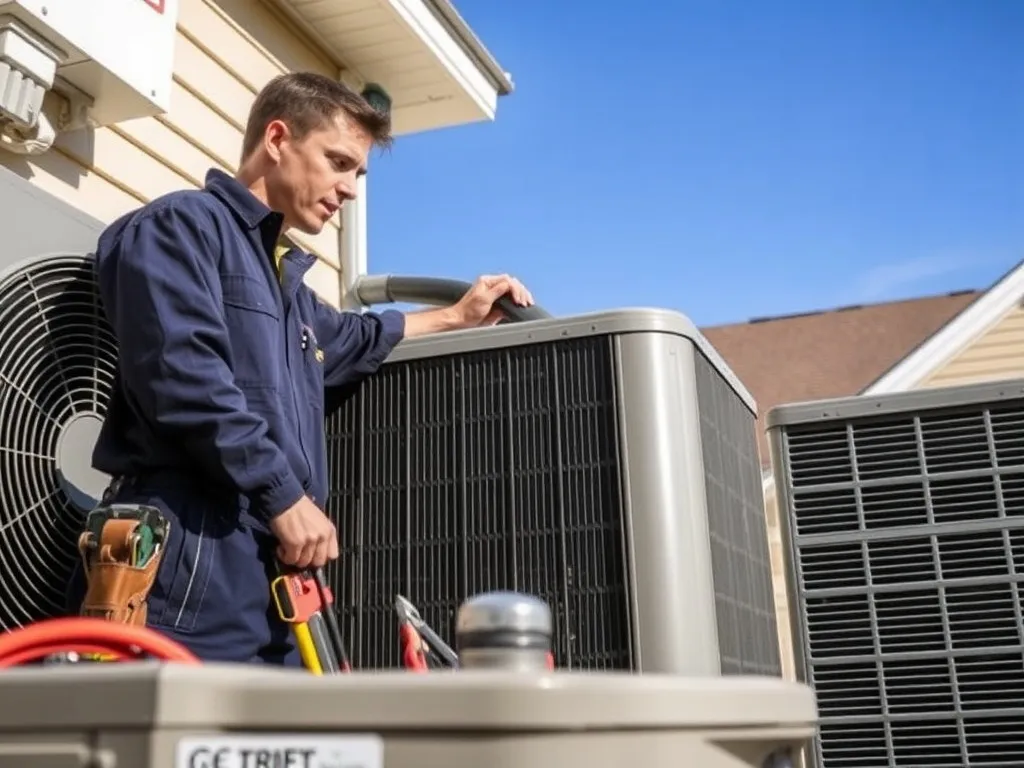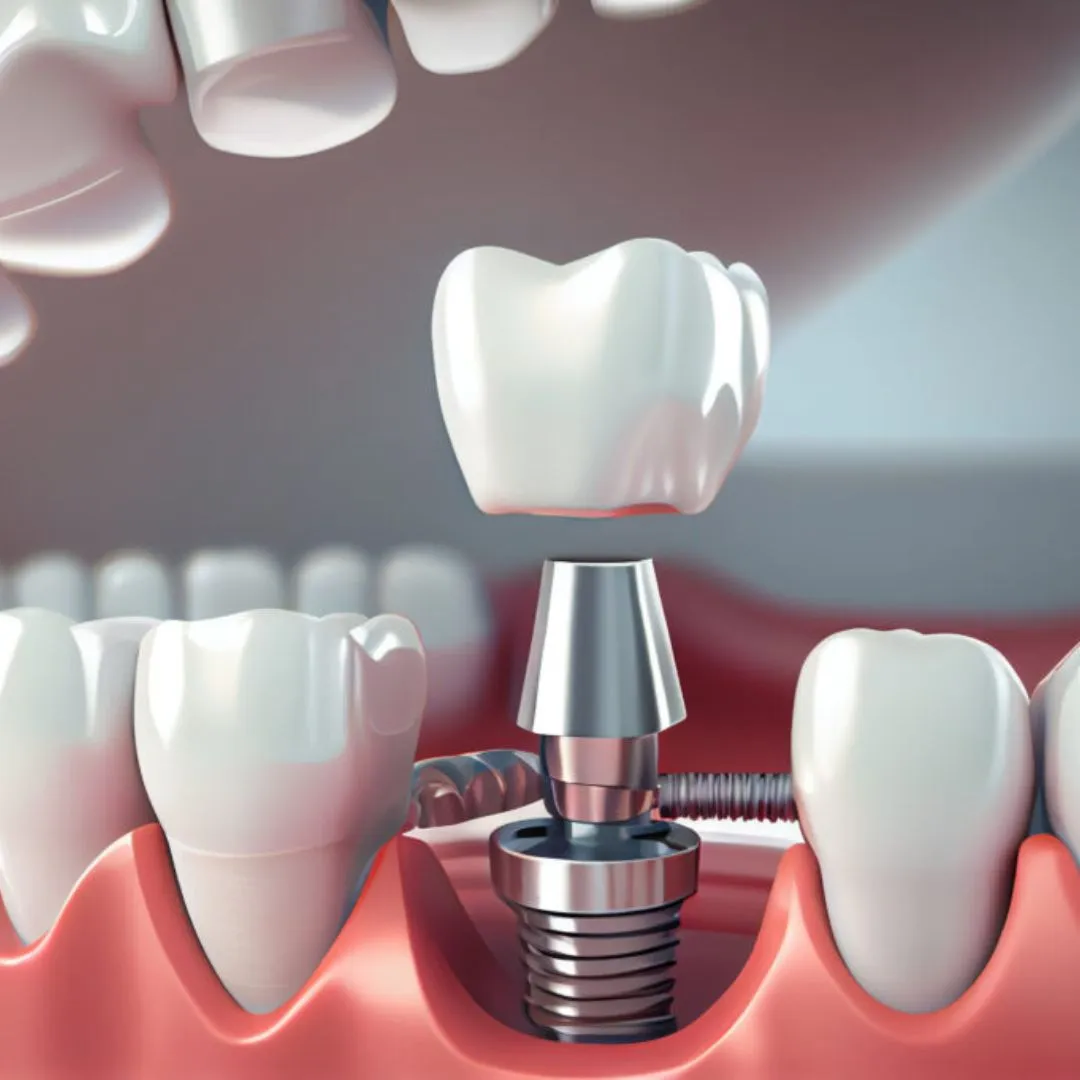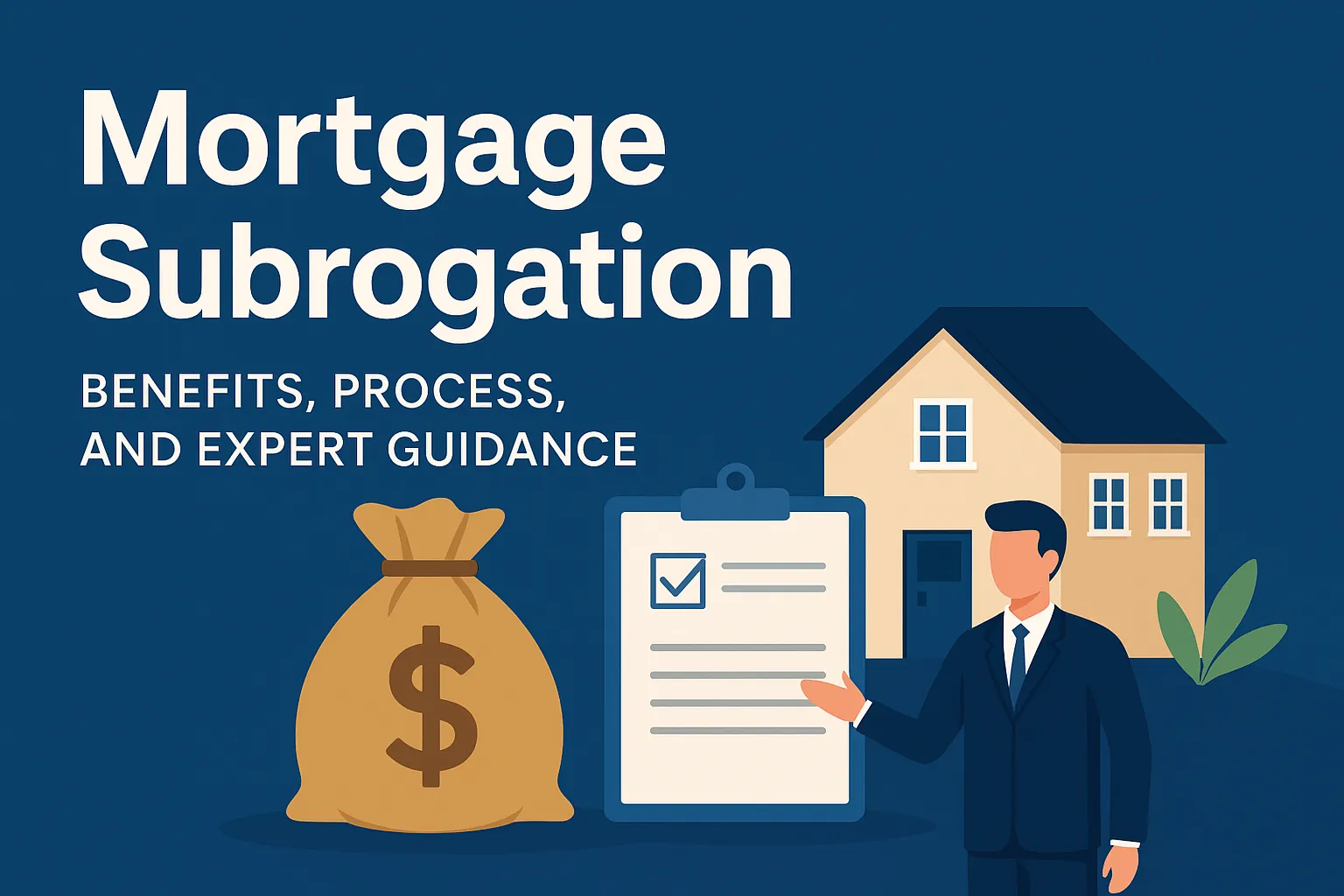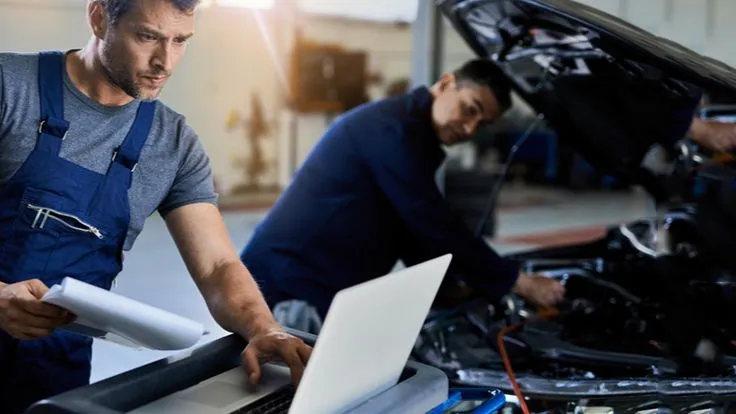Mastering Comfort: An In-Depth Guide to HVAC Services for Your Home and Business
In today's world, maintaining a consistent and comfortable indoor environment is no longer just a luxury—it’s a fundamental necessity. Central to achieving this comfort is the HVAC system, which stands for Heating, Ventilation, and Air Conditioning. These intricate systems regulate temperature, humidity, and air quality, playing a vital role in health, productivity, and property preservation. Understanding the range of professional HVAC services available is essential to ensure your system operates efficiently throughout the year, safeguarding your investment and comfort.
This comprehensive guide will explore the critical services offered by HVAC professionals, from emergency air conditioning repairs to the meticulous installation and replacement of entire climate control systems. By prioritizing expert care, you can achieve a comfortable, energy-efficient, and healthy indoor space.
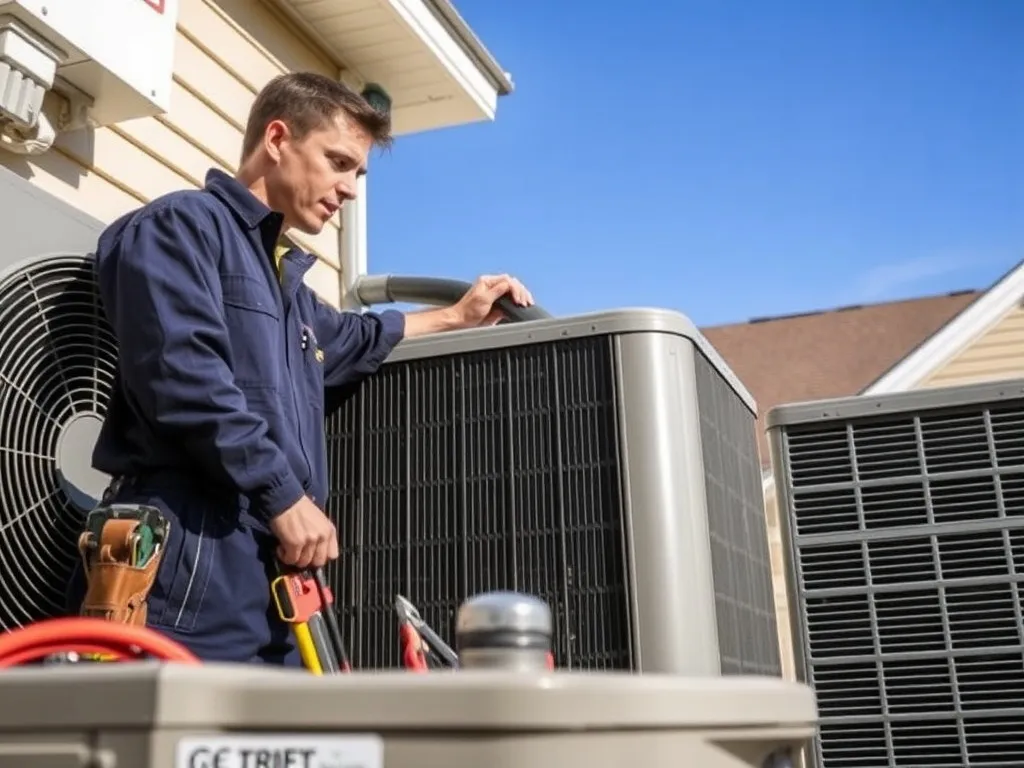
1. The Foundation: Understanding Essential HVAC Services
HVAC services encompass a broad spectrum of technical tasks designed to keep climate control systems—furnaces, air conditioners, heat pumps, and ventilation units—functioning seamlessly. These services go beyond simple repairs; they represent a proactive investment in your home’s infrastructure and the well-being of your family. A qualified technician possesses the expertise necessary to navigate the complex mechanical, electrical, and chemical aspects of modern heating and cooling technology.
The primary objective of professional HVAC services is to maximize efficiency, extend the lifespan of equipment, and ensure optimal performance, particularly during extreme weather conditions. Neglecting minor issues can lead to costly and inconvenient breakdowns. By partnering with a reliable HVAC provider, you ensure that a trained expert is available to address every aspect of your system, from routine maintenance to complex integrations. These services are essential for long-term indoor comfort and operational savings.
2. When Disaster Strikes: Emergency Air Conditioning Repair
Few experiences are more frustrating than an air conditioning unit failing on the hottest day of the year. This is where emergency air conditioning repair becomes crucial. Professional HVAC companies provide rapid response times to diagnose and resolve critical malfunctions, restoring comfort swiftly and safely. Common emergency issues include compressor failures, refrigerant leaks, and significant electrical faults that hinder the unit's operation.
When you call for emergency air conditioning repair, a skilled technician arrives equipped with diagnostic tools and often carries common replacement parts to address the issue promptly. Safety is a top priority; technicians first check for dangerous electrical problems or gas leaks before performing mechanical repairs. Having a trustworthy provider for emergency HVAC services minimizes inconvenience and ensures proper repairs, preventing further damage to vital components.
3. The Lifecycle Begins: Expert Installation of New Systems
The installation process is the most critical factor influencing the long-term performance and efficiency of a new HVAC system. An incorrectly sized or poorly installed unit can lead to increased energy bills, frequent breakdowns, and a reduced lifespan, undermining the expected savings from new equipment. Professional HVAC services begin with a thorough load calculation (often referred to as Manual J calculation) to size the unit accurately based on your building's unique features—such as square footage, insulation, window placement, and local climate.
This precise sizing prevents the system from "short cycling," a common cause of premature wear and inefficient operation. During installation, technicians ensure proper duct sealing, correct refrigerant charging, and accurate electrical wiring, all essential for optimal efficiency as rated by the manufacturer. Choosing a certified HVAC contractor for your installation is the best way to guarantee maximum comfort and lower utility bills.
4. The Inevitable Upgrade: Seamless Replacement Services
Every HVAC system has a finite lifespan, typically ranging from 10 to 15 years for air conditioning units and 15 to 20 years for furnaces. When air conditioning repair costs start to exceed the cost of a new system, it’s time to consider a professional replacement. Modern units are significantly more energy-efficient than their predecessors, meaning a replacement can lead to substantial long-term savings on energy costs.
A complete replacement service involves the careful removal of the outdated equipment and the installation of a new, high-efficiency model. This process often includes upgrading components like thermostats (to modern smart thermostats) and necessary wiring or refrigerant lines to meet current efficiency standards. Technicians also ensure the safe disposal of the old unit, adhering to environmental regulations and simplifying the upgrade process for homeowners or business owners.
5. The Proactive Approach: Routine Maintenance and Tune-Ups
Preventative maintenance is the cornerstone of effective HVAC services. Scheduling annual tune-ups for your cooling system in the spring and heating system in the fall can significantly reduce the likelihood of needing emergency air conditioning repairs. During these routine service calls, technicians clean coils, check refrigerant levels, lubricate moving parts, and tighten electrical connections.
5.1 The Importance of Annual AC Tune-Ups
An annual AC tune-up ensures the system operates at peak efficiency. Dirty coils and low refrigerant levels are significant factors that cause an air conditioning unit to overwork, leading to higher energy consumption and potential overheating.
5.2 Benefits of Regular Maintenance
- Higher Efficiency: Well-maintained units consume less energy, lowering utility bills.
- Extended Lifespan: Regular inspections catch minor wear and tear before they escalate into major failures.
- Improved Air Quality: Cleaning and replacing filters eliminate allergens and dust from the air.
6. The Heart of the Matter: Ductwork Inspection and Sealing
The most powerful HVAC system is only as effective as the ductwork that distributes the air. In many homes, up to 30% of conditioned air is lost through leaks, holes, and poorly connected joints in the duct system. Professional HVAC services include comprehensive duct inspection and sealing, which can lead to immediate improvements in energy efficiency and indoor comfort.
Sealing leaky ducts prevents conditioned air from escaping into unconditioned spaces (like attics or crawlspaces) and stops unconditioned air, moisture, and dust from infiltrating the system. Duct cleaning is another specialized service that removes years of accumulated dust, mold, and allergens, particularly important for households with allergy or respiratory concerns. Addressing ductwork is crucial for maximizing the benefits of a new installation or replacement project.
7. Improving Indoor Air Quality (IAQ) Solutions
Beyond temperature control, the quality of the air you breathe is a primary concern of modern HVAC services. Poor Indoor Air Quality (IAQ) can worsen asthma and allergy symptoms and may lead to long-term health issues. HVAC professionals provide various solutions to clean and treat the air circulating through your home or business.
7.1 Advanced Air Filtration and Purification
- HEPA Filters: High-Efficiency Particulate Air filters capture tiny particles, including pollen, pet dander, and dust mites.
- UV Lights: Installed within the HVAC unit or ductwork, Ultraviolet (UV) lights eliminate airborne mold spores, bacteria, and viruses as they pass through the system.
- Air Scrubbers: These devices actively remove pollutants and odors from the air, offering comprehensive purification solutions.
7.2 Humidity Control
Managing humidity is essential for comfort and health. High humidity can encourage mold growth and make warm air feel oppressive, while low humidity can lead to dry skin and damage wood furniture. Technicians can integrate whole-house humidifiers or dehumidifiers into your existing HVAC system.
8. Financial Planning: Warranties and Service Agreements
A significant aspect of professional HVAC services involves helping customers protect their investments through warranties and service agreements. All new installations come with a manufacturer's warranty covering parts, but proper maintenance is often required to keep that warranty valid. Your HVAC provider may also offer additional labor warranties on their installation work.
Service agreements, often referred to as maintenance plans, cover annual tune-ups and sometimes provide discounted rates on air conditioning repairs. These agreements ensure you don't overlook preventative maintenance, which is vital for maximizing equipment lifespan. When considering a system replacement, always inquire about the duration and conditions of both the parts warranty and the labor warranty to ensure long-term peace of mind.
9. The Evolution of Comfort: Smart HVAC Technology
Modern HVAC services increasingly focus on integrating smart technology to enhance efficiency and user control. Smart thermostats have become standard in many new installations and replacements. These devices learn user habits, automatically adjust temperature settings, and offer remote control via smartphone apps, resulting in significant energy savings.
9.1 Advanced Diagnostic Tools
Technicians now utilize sophisticated digital tools to diagnose system issues with precision. These tools monitor refrigerant pressure, temperature fluctuations, and electrical loads in real-time. This advanced diagnostic capability accelerates air conditioning repair times and improves problem-solving accuracy, allowing technicians to spend less time guessing and more time fixing issues.
9.2 Integrating High-Efficiency Systems
Professional HVAC contractors are experts in installing advanced, high-efficiency equipment, such as Variable Refrigerant Flow (VRF) systems and Geothermal Heat Pumps. These systems represent the cutting-edge of energy-efficient climate control and require specialized knowledge for proper installation and maintenance.
10. Choosing the Right Partner for Your HVAC Services Needs
Selecting the right HVAC contractor is crucial, whether you require a simple air conditioning repair or a complete system replacement. Not all providers offer the same level of expertise, certification, or customer service. A truly professional HVAC services company should be licensed, insured, and certified by industry organizations like NATE (North American Technician Excellence).
Checklist for Choosing Your Service Provider:
- Certifications: Do they employ NATE-certified technicians?
- Insurance and Licensing: Are they fully licensed and insured to operate in your area?
- Track Record: Do they have a history of positive customer reviews for installation and replacement services?
- Guarantees: Do they provide guarantees on their repair or installation work?
Choosing a reputable partner ensures that every aspect of your HVAC services—from routine maintenance to emergency air conditioning repairs—is handled with the utmost professionalism and technical competence.
Conclusion
The health, comfort, and efficiency of your home or business significantly depend on your HVAC system's performance. Comprehensive HVAC services—encompassing everything from preventative maintenance to expert air conditioning repairs, precise new system installations, and professional replacements—are not mere expenses but essential investments. By committing to regular, expert care, you ensure that your equipment runs smoothly, your energy bills remain manageable, and your indoor environment stays comfortable, healthy, and safe, year after year.
Ready to secure the long-term performance and efficiency of your HVAC system? Contact a certified professional today to discuss your maintenance or replacement needs.


